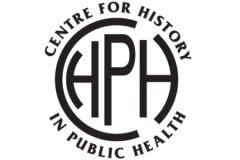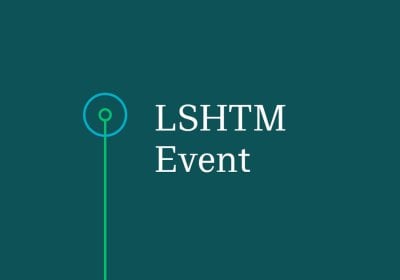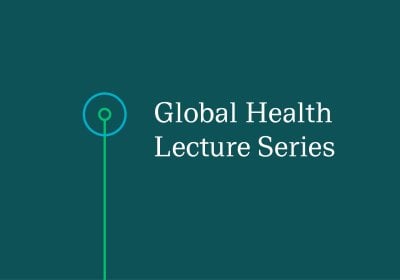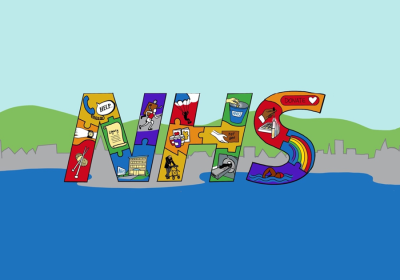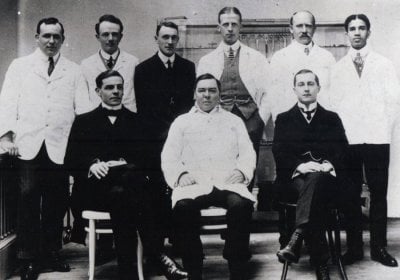The coronavirus years? Historical perspectives on COVID-19 and its aftermath
In this symposium, speakers will show how past policy was developed and implemented, what worked and what did not, and what implications this might have for the response to COVID-19 and its ongoing effects.

This symposium, organised in conjunction with History & Policy, Institute of Historical Research will draw on historical research to explore the policy challenges that result from significant health and social crises and show how these were addressed in the past. The symposium seeks to move beyond the historical analysis of the ‘emergency’ phase of pandemics and assess their longer running legacies.
The event consists of two half days of two sessions, tackling three papers in each session with a Q&A to close. The symposium will have two areas of focus:
- The first centres on health, looking at the implementation of vaccination programmes in the past, and at how the history of other aspects of health and health services may determine the aftermath of COVID-19.
- The second will examine the economic, social, and political impacts of past shocks, and also at how we can explain global differences in policy responses to COVID-19 by considering regional, national and local histories.
Programme Day 1 - 11 May 2021
- 14.00 - 15.55: Session 1 - Vaccination
-
Chair
Hannah Elizabeth, LSHTM
Speakers
- Gareth Millward, University of Warwick: ‘Confidence and Hesitancy: the Historical Construction of a "Problem"'
- Sanjoy Bhattacharya, University of York: ‘Is Vaccine Hesitancy Anti-Science?: A Review of Resistance in International and Global Health Programmes’
- Dora Vargha, University of Exeter: ‘The End and What Comes After: Understanding Epidemic Temporalities’
- 16.15 - 18.00: Session 2 - Beyond the Pandemic – Mental and Emotional Health
-
Chair
Janet Weston, LSHTM
Speakers
- Matt Smith, University of Strathclyde: ‘Peace of Mind in Pandemic Times: Universal Basic Income’s Potential to Improve Mental Health’
- Agnes Arnold-Forster, McGill University: ‘The NHS Workforce and Emotional Health: Past, Present, and Future?’
- Fred Cooper, University of Exeter: ‘Days of Abandonment: History, Language, and the Politics of the Lonely Pandemic’
Programme Day 2 - 12 May 2021
- 14.00 - 15.55: Session 3 - Global policy responses
-
Chair
Philip Murphy, Institute of Historical Research
Speakers
- Marcos Cueto & Gabriel Lopes, Casa de Oswaldo Cruz, Fiocruz, Rio de Janeiro: ‘“Mismanagement:" and "Necropolitics" in the first year of the Pandemic in Brazil’
- Anne-Emanuelle Birn, University of Toronto: ‘Pandemic (history) fatigue: which/whose histories matter for global health policy players’
- Vivek Neelakantan, Independent Scholar: ‘Framing COVID-19 in India: A Case of Necropolitics and Trust Deficit’
- 16.15 - 18.00: Session 4 - Beyond the Pandemic – Economy and Society
-
Chair
Virginia Berridge, LSHTM
Speakers
- Jenny Crane, University of Oxford: ‘I Worry Every day That I am Going to get COVID-19 and Give it to my Mum': Changing Childhoods in the age of COVID-19’
- Christos Lynteris & Jules Skotnes-Brown, University of St Andrews: ‘Sylvatic COVID-19 Reservoirs? A Warning From History’
- Simon Szreter and Hilary Cooper, University of Cambridge: 'Wanting: a Strategy for Preventing Community Transmission of Infection in the Austerity State'
Recording links
LSHTM's response to COVID-19
LSHTM experts are involved in many different aspects of COVID-19 research as well as providing guidance to those responding around the globe every day. Find out about our latest research, news, events and free online courses on the outbreak.
Subscribe to our new LSHTM Viral podcast to hear the latest science behind the coronavirus outbreak and the global response to COVID-19. You can listen to LSHTM Viral wherever you get your podcasts: Anchor, Apple Podcasts, Breaker, Castbox, Google Podcasts, Overcast, Pocket Casts, RadioPublic, Spotify, Stitcher.
There cannot be any complacency as to the need for global action. With your help, we can plug critical gaps in the understanding of COVID-19. This will support global response efforts and help to save lives around the world. Support LSHTM's COVID-19 Response Fund.
Admission
Contact
